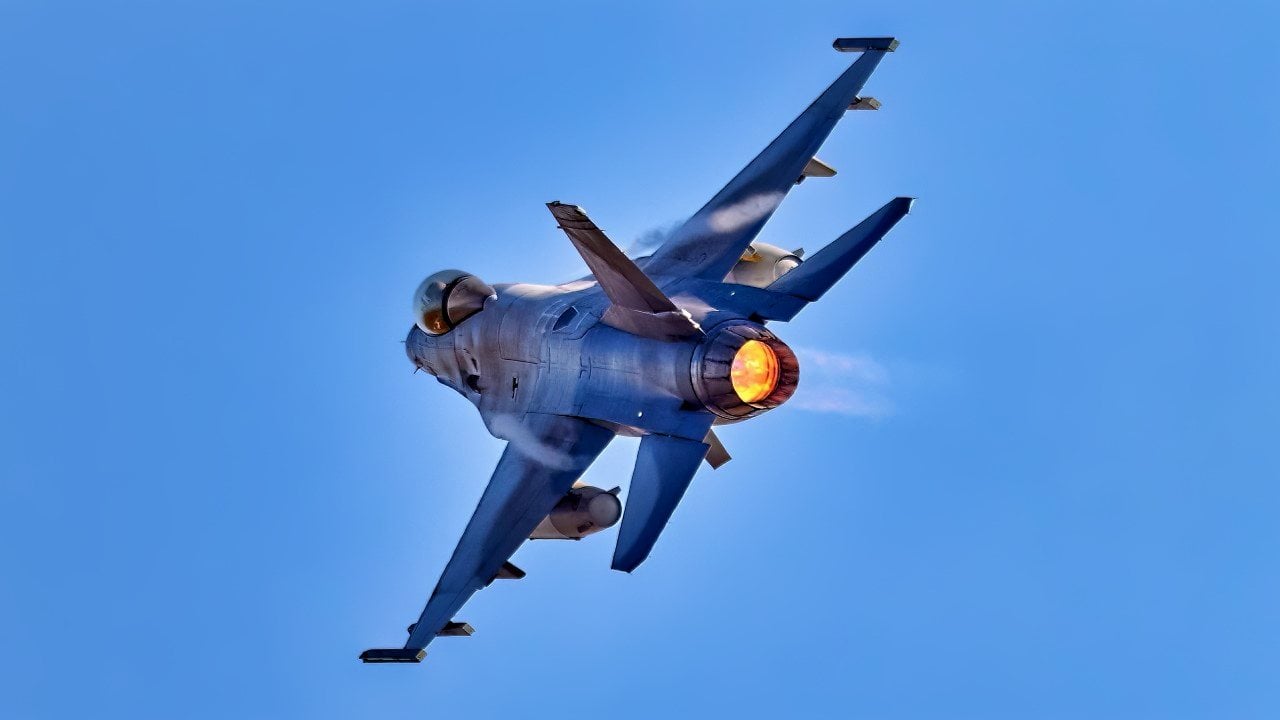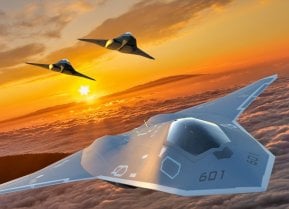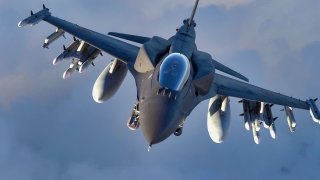F-21: India Might End Up with the Best F-16 Fighting Falcon Ever
The F-21, boasting upgraded mission computers, avionics, and enhanced communication systems, represents not just a technological leap but a strategic advantage in India's quest to counterbalance Chinese influence.
Summary: Lockheed Martin's proposal to relocate F-16 production lines to India, in collaboration with Tata, illustrates a keen strategy to win over India's lucrative aviation contract, potentially shifting the balance of military airpower in the region. The F-21, boasting upgraded mission computers, avionics, and enhanced communication systems, represents not just a technological leap but a strategic advantage in India's quest to counterbalance Chinese influence.
Here Comes the F-21 Fighter
As China expands its military and makes bolder territorial claims, India is working to solidify its own defensive capabilities.
New Delhi has typically turned to Moscow when it needs military hardware. Russia has shipped “billions of dollars’ worth” of military equipment to India just in the last decade. But lately, India is flirting with a different international partner, the United States, from whom India has been soliciting aerospace technology.
A Strategic Partnership
The U.S. has a vested interest in containing China, and Washington relies on Indo-Pacific allies and partners to shoulder a portion of the burden. Nations like Japan, South Korea, Taiwan, and India that are also vested in containing China have courted the U.S. as a strategic partner. For these Indo-Pacific nations, the partnership has resulted in the supplying of military equipment.
New Delhi has already purchased U.S. aircraft like the P-8 Poseidon and AH-64 Apache. But India is intent on further enhancing its aerospace abilities as China works fervently to develop modern, capable aircraft like the Chengdu J-20 fifth-generation fighter and the Xi’an H-20 stealth bomber.

The U.S. recognizes the value of trading with India, a nation with over 1 billion citizens. So do other aerospace-manufacturing nations like France and Sweden, who are offering India the Dassault Rafale and Saab Gripen. Further, the European Union could provide the Eurofighter Typhoon.
America, in an effort to elbow out other potential trading partners, is working to upgrade its offering.
Upgrading the F-16
In 2019, at the Aero India exhibition, Lockheed Martin unveiled an upgraded version of the F-16 Fighting Falcon known as the F-21. Lockheed modified the jet specifically for the Indian Air Force, boasting that the airframe would be the most advanced fourth-generation fighter in operation anywhere.
Lockheed has been courting an Indian aviation contract for years. The company previously offered India the F-16, but New Delhi demurred. Now, Lockheed is arguing that the upgraded F-16 would “strengthen India’s path to an advanced airpower future.”
“An option for new production, the F-21 will have a slew of the latest state of the art technological advancement and improvements that include a new radar system, stealth detection capabilities, and electronics design that add a lot of value to the already iconic aircraft,”Defence Aviation reported.
Lockheed, homing in on the lucrative Indian contract, has expressed a willingness to shift F-16 production lines to India in collaboration with Tata as a way to sweeten the pot.
Introducing the F-21
According to Defence Aviation, the new F-21 will feature an upgraded mission computer and state of the art avionics. The jet will also feature a Central Pedestal Display, which will improve the pilot’s situational awareness with real-time processing of flight data. “In addition, the F-21 will also come with an upgradable display generator, a link-16 data link, HF/UHF/VHF multiple frequency radio communication support as well as IFF enhancements,” Defence Aviation reported.
At present, the F-21 is just a concept. But if India places a large order – such as the estimated $18 billion order for 115 jets New Delhi has been reported as seeking – the F-21 will become an important piece in helping India balance Chinese influence.
About the Author: Harrison Kass
Harrison Kass is a defense and national security writer with over 1,000 total pieces on issues involving global affairs. An attorney, pilot, guitarist, and minor pro hockey player, Harrison joined the US Air Force as a Pilot Trainee but was medically discharged. Harrison holds a BA from Lake Forest College, a JD from the University of Oregon, and an MA from New York University. Harrison listens to Dokken.


